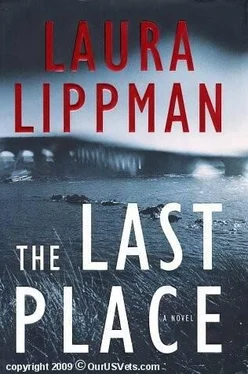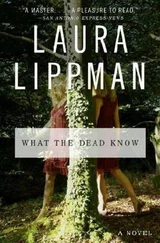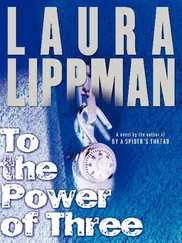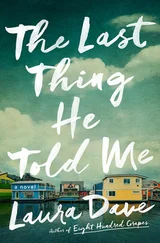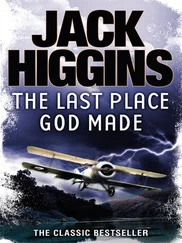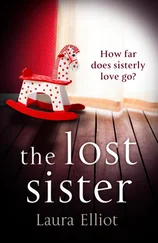The compliment did not soothe Crow. “You’ve got to call the state police.”
“And tell them-”
“Everything.”
Tess knew the advice was right and prudent. Truly, Crow cared only about her and her safety. That was the problem. She wasn’t the only person in the world. She had to protect herself, but there were others who had to be protected as well. Whitney, Crow, her parents. Luisa’s daughter. A man who would kill a woman just to make a point would kill anyone. She wouldn’t be safe from him until she knew who he was and why he did what he did.
“Luisa believes that if this man knows she spoke to me, he’ll kill her daughter.”
“You can’t think about that.”
“I have to think about that.” The gun was still in her lap, hidden in the folds of the dish towel, a black-and-white gingham print. Seeing that dish towel from her own kitchen made Tess long for everything ordinary in her life, everything she had taken for granted when she awoke this morning: her dogs, her bed, the view from her deck, her toothbrush. The happy sensation of coming home at the end of the day and pouring a glass of wine. A life without fear.
Where was he? Who was he? Had they met? Exchanged a few words?
“He’ll kill anyone, for any reason. He killed Julie for me.”
Whitney nodded, but Crow was confused.
“You didn’t want Julie dead,” he said. “She was just a pathetic junkie who tried to shake you down for a few bucks. Why would you care what happened to her?”
“No. He killed Julie because he knew the investigation had stalled, that I was no longer a part of it. He killed a woman to get my attention.”
“She was on his list,” Whitney pointed out. “Perhaps he always intended to kill her. As Luisa said, ”Nothing is random.“ ”
“Point taken. But if I go to the state police and Luisa’s daughter out in Chicago ends up dead, how do I justify that? She’s a mother. Whatever her parents have done-whatever her brother did-she’s innocent.”
“How will he know if you talk to the police?” Crow asked.
“I don’t know. He seems to know everything else about me. He knew how to get to me-how to use Luisa to set up a project that would be irresistible to me. How to get me to put the pieces together.”
“But he’s dead,” Whitney said. “The wreckage of the boat was found. They’re looking at bodies, trying to make a match.”
“Sometimes,” Tess said, “a John Doe is simply a John Doe. People drown, they don’t get identified. Who’s to say our guy didn’t catch a break?”
“Yes, but you’re assuming the only person who could know these five names is the killer himself. What if there are two killers, the man who killed Tiffani and Lucy and a second man, who had entirely different reasons for killing Julie Carter, Hazel Ligetti, and Michael Shaw. Those murders all happened after the apparent suicide, right? And they’re nothing like the first two.”
Tess rubbed her forehead. “My brain hurts.”
“My soul hurts,” Crow said. “I think I’m going to be sick. I’ve never felt so helpless.”
They sat in glum silence, coffee growing cold, muffin untouched. Together, the three could usually figure anything out. Like Dorothy’s companions through Oz, they were three incompletes who made a whole. Crow was all heart, like the Tin Man. Whitney was their Scarecrow, but more like the version in the book, the one whose head was filled with needles and pins so he might be sharp.
This left Tess, by default, to be the Cowardly Lion, the one who marched forward into battle, bitching and moaning from fear all the while. She was afraid. She had no illusions about herself. If she had a choice, she wouldn’t fight this fight.
It would have been nice, having a choice.
Even junkies have to be buried.
Tess scanned the Sunday edition of the Beacon-Light, looking for the classified obituary notice that would tell her if there was a funeral service for Julie Carter. She knew Julie would not qualify for what the paper’s writers privately called the mort du jour, one of the lengthier obituaries, reported and written by a staff writer.
You didn’t have to be rich or socially prominent to warrant a fullblown mort, although it didn’t hurt. Getting shot and killed in an apparent drug deal was pretty much guaranteed to keep you off the obituary page, with its soft-focus photography and distilled hagiography.
She found, at last, the tiny paid death notice. For a Catholic, Julie was going in the ground fast. The Rosary was scheduled for that very evening, with the funeral mass and burial set for tomorrow. Tess tore out the information and tried to remember if she had a dark dress that was lightweight enough for warm weather.
She also wondered if she was the only nonrelative who was searching the paper this morning for Julie’s obituary, if she would be the only stranger who showed up at the service and the graveside. It was 5 A.M., and she was reading the paper after a sleepless night, her gun lying next to her on the dining room table. Her doors and windows were double-bolted, shutting out the balmy spring air that she so loved. The only sound in the house was the trio of slumbering breaths coming from the bedroom-Esskay, Miata, and Crow, who had finally fallen asleep about 3 A.M.
She had a black linen suit, she remembered, something she hadn’t worn for years. Could you wear linen before Memorial Day, or did that rule apply only to white linen?
Julie Carter’s people probably didn’t make those kinds of distinctions anyway.
Tess had more experience with death than she did with its attendant rituals. Julie Carter’s funeral, held in a pretty stone church out in what people insisted on calling the country, was only the third or fourth that Tess had attended in her adult life. She counted them up: Her maternal grandfather. An older colleague from the Star, who had died of cancer in her fifties. A service for the grandchild of one of her mother’s best friends, killed in a fall, the saddest by far.
And Jonathan Ross.
Sometimes, she thought the scar tissue over that wound was almost too hard, too complete. It was as if her very ability to heal had revealed just how half-assed, how sleazy, their relationship had been. The nightmares came from being an eyewitness to his death, not because he was the love of her life. She had never mistaken him for that. She had envied him, however, in life and death. Jonathan’s funeral had been crowded, his legacy as a journalistic star unquestioned. Later, when Tess had faced her own near-death, her first thought was of how skimpy her obituary would be. A superficial thought, but it had helped her fight for her life, and here she was-at the most awkward funeral she could imagine, a service of long silences and stammered clichés. What can you say about a twenty-one-year-old woman who died? That she was a junkie and a con artist.
In the front pews, Julie’s family-parents, brothers and sisters, a few elderly people who might have been grandparents or even great-grandparents-appeared sullen and disgruntled, as if they had better places to be on the unseasonably warm day. Julie’s friends were scattered among the rear pews, party girls and boys, at once sleepy and restless at 11 A.M. The in-between pews were empty. There was no middle ground in Julie’s life. You were either family or you were one of her fucked-up friends.
Tess took a seat in the last pew and tried to study the men. Even from the backs of their necks, she could tell the man she was looking for was not here. These young men were mullet heads, their longish hair straggling over shirt collars that were not as clean as they should be, reaching down to jackets that looked as if they had been dragged from some cramped closet and shaken to remove the wrinkles. They were young, too, these men, not much older than Julie. The parking lot outside, with its Trans Ams and shiny pickups, attested to their youth as well. Tess had known before she walked in that her quarry was not here and probably would not be here.
Читать дальше
